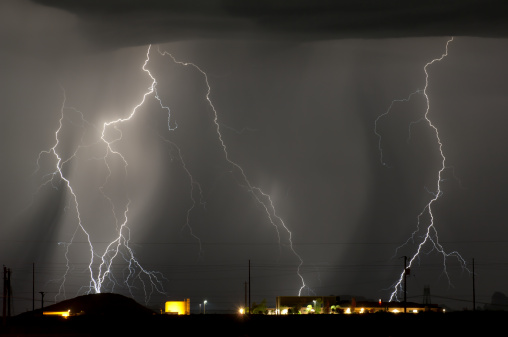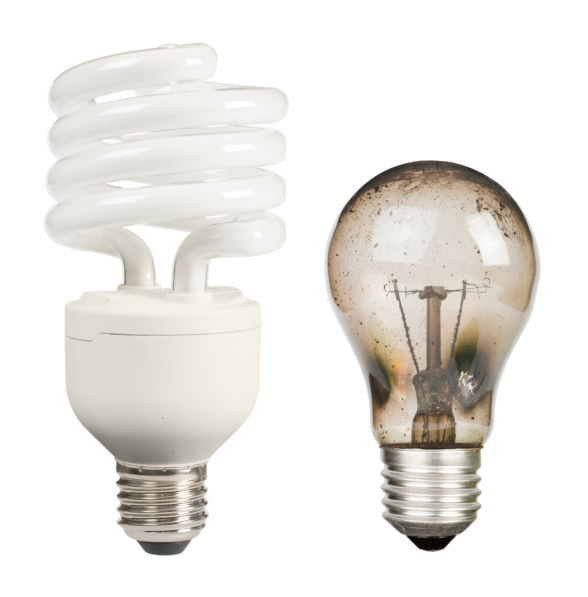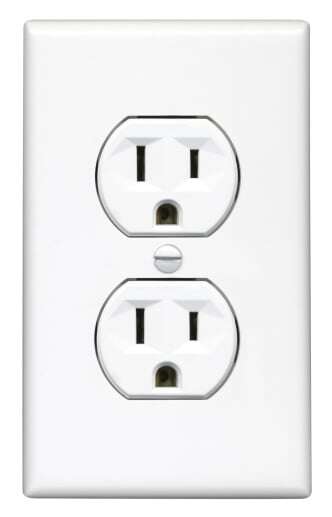 We've probably all seen or heard news footage from people along the East Coast or Gulf Coast, preparing for hurricanes by boarding up their windows and rushing to the store for supplies.
We've probably all seen or heard news footage from people along the East Coast or Gulf Coast, preparing for hurricanes by boarding up their windows and rushing to the store for supplies.
Though fearful and nervous, they possess something absolutely invaluable: advance warning, which is something even northern Californians – who have to confront only thunderstorms of varying velocities – can benefit from, too. After all, every thunderstorm produces lightning, and lightning kills more people each year than hurricanes or tornadoes. Also, thunderstorms can cause flash flooding while damaging winds can wreak havoc on homes and utility poles, which often trigger power outages.
Still, warnings are useful only if you make good use of the time before a storm hits – and a local electrician at Experts In Your Home would like to share with you how to do just that.
But first, if you're not already an amateur “weather watcher” – someone who regularly checks the weather forecast or even has a weather app on your cell phone – you should at least understand the difference between a severe thunderstorm watch and a severe thunderstorm warning.
A severe thunderstorm means that conditions are ripe for a thunderstorm to develop. A watch tells you just that: to watch out. A warning means that a thunderstorm has been spotted and is imminent in your area. This is the time to take preventive action.
Well before either condition develops, though, you should have assembled a “survival kit.”
A first aid kit is the most important element in a survival kit, but don't forget to include:
- At least two flashlights, including extra batteries
- Candles, along with matches or lighters
- At least a three day-supply of bottled water for every person
- At least a three-day supply of non-perishable food for every person
- A manual can opener
- An extra set of clothes and durable shoes
- Blankets
- A battery-powered radio, along with extra batteries
- Personal hygiene items, such as soap and toilet paper
- A map of your town and the surrounding area
- A whistle to signal for help
You should place your vital paperwork in a safe place. (After all, you won't have time to gather all this information even with notice that a storm is approaching.) Take the extra precaution of putting the paperwork in a gallon-size plastic bag to protect the contents from possible water damage.
Your paperwork should include:
- Your driver's license
- Duplicate sets of keys for your home, car, office and safe deposit box
- Emergency contact numbers
- Insurance policies for your house and car
- Birth certificates, passports and wills
- Bank account information, including account numbers and passwords
- Photocopies of credit and debit cards (both front and back)
- Investment information
While you keep your eyes on the sky and an ear tuned to the weather forecast – and naturally, depending on how much time you have – take the following steps:
- Fill up your car with gas. If worse comes to worse, you might have to travel to a safer place, and nearby gas stations might be without power.
- Park your car in the garage upon your return to keep it safe from the potential of falling trees.
- Secure outdoor possessions that could take flight during a storm, including light furniture, bicycles, flower planters and toys.
- Protect vulnerable windows with strong tape or plastic. If they're prone to leaking, gather some old towels to mop up water.
Keep the contact information of a local electrician in Chico at Experts In Your Home nearby; we'll be your port in any storm.
To learn more ways Experts In Your Home can help you stay safe in your home, download the free offer below.








